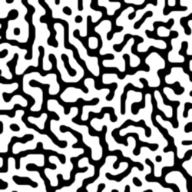First dinosaurs then humans. But what species do you think are next to be on earth when we go extinct?
2016-11-15 5:10 pm
回答 (4)
2016-11-15 7:05 pm
Dinosaurs didn't arrive on the planet until about 250 million years ago, while the age of the planet is over 4.5 billion years. Dinosaurs were not the first life. For the first 3.3 billion years or so, most living things were single celled organisms. It was only about 500 million years ago that multicelluar organisms began to dominate. Also, there was a gap of 65 million years since the last dinosaurs, and the first humans. When humans are gone, there will be plenty of other living things to populate the earth.
2016-11-15 9:38 pm
There are always MANY species simultaneously.
No one knows the future exactly. Say humans die off by thermonuclear war and radiation. That same environmental damage would kill off many, maybe even most other species. But surely many species of plants and some of animals, some of bacteria, some viruses, some fungi would survive. New ecosystems would form and life and evolution of new life would gradually reoccur. Possibly no intelligent life would evolve, but after billions of years a new planet with much life would surely occur.
No one knows the future exactly. Say humans die off by thermonuclear war and radiation. That same environmental damage would kill off many, maybe even most other species. But surely many species of plants and some of animals, some of bacteria, some viruses, some fungi would survive. New ecosystems would form and life and evolution of new life would gradually reoccur. Possibly no intelligent life would evolve, but after billions of years a new planet with much life would surely occur.
2016-11-15 7:09 pm
That depends on what else become extinct. It is very likely that fish will survive, as they have survived the 5 major extinctions the earth has faced so far. Some land vertebrates will also likely survive. What animals will evolve from the survivors will likely depend on the climate. if it is hot then reptiles will likely dominate. if it is cool then mammals and birds (assuming they survive) may dominate. There will also be many invertebrates among the survivors, including insects in all likelihood.
2016-11-15 5:48 pm
Bacteria, viruses, and other microscopic creatures have shown that they are pretty adept at surviving all kinds of conditions. They were here long before us and they will be here longer after we are gone.
收錄日期: 2021-04-22 00:08:35
原文連結 [永久失效]:
https://hk.answers.yahoo.com/question/index?qid=20161115091022AAfe2CS

